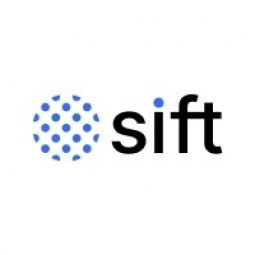Customer Company Size
Large Corporate
Country
- Worldwide
Product
- Sift Payment Protection
- Sift Account Defense
- Sift Dispute Management
Tech Stack
- Machine Learning
- Data Analytics
Implementation Scale
- Enterprise-wide Deployment
Impact Metrics
- Cost Savings
- Productivity Improvements
- Customer Satisfaction
Technology Category
- Analytics & Modeling - Real Time Analytics
Applicable Industries
- Finance & Insurance
Applicable Functions
- Business Operation
Use Cases
- Fraud Detection
Services
- Data Science Services
About The Customer
Uphold is a multi-asset digital money platform offering financial services to a global market. They currently operate in 184+ countries, across 80+ currencies (traditional and crypto) and commodities, offering customers frictionless foreign exchange and cross-border remittance. Since launching in 2015, Uphold has powered more than $4+ billion in transactions. It was crucial for Uphold to ensure the trustworthiness of new users while reducing friction throughout the customer journey and securing all subsequent actions users take on the site.
The Challenge
Uphold, a multi-asset digital money platform, was facing challenges in ensuring the trustworthiness of new users while reducing friction throughout the customer journey. The company needed accurate risk assessments of the actions taken on their site. This meant deploying additional friction points and manual review before Uphold would allow a customer to transact. Uphold needed a fraud prevention solution that highlighted the riskiness of every action taken on their site and that simplified the review process for their fraud analysts, allowing them to quickly identify linked fraud behaviors between accounts so they could stop fraud fast.
The Solution
Uphold turned to Sift for a fraud prevention solution. Sift's Payment Protection and Account Defense products easily integrated with Uphold’s existing systems and allowed them to secure key points in their customer journey—account creation and the subsequent transactions that took place on their platform. Their fraud analyst team leverages the Explore and Review dashboards within the Sift console to gain insight on users and their actions, and identify risky behaviors between accounts. They also utilize the Workflows feature to quickly build rules off of the real-time risk assessments provided by Sift that can be easily adjusted as business and fraud trends changed—all with little-to-no coding. Uphold also recently expanded their relationship with Sift and began using the Dispute Management product to reduce chargebacks, win more disputes, and boost efficiency.
Operational Impact
Quantitative Benefit

Case Study missing?
Start adding your own!
Register with your work email and create a new case study profile for your business.
Related Case Studies.

Case Study
Real-time In-vehicle Monitoring
The telematic solution provides this vital premium-adjusting information. The solution also helps detect and deter vehicle or trailer theft – as soon as a theft occurs, monitoring personnel can alert the appropriate authorities, providing an exact location.“With more and more insurance companies and major fleet operators interested in monitoring driver behaviour on the grounds of road safety, efficient logistics and costs, the market for this type of device and associated e-business services is growing rapidly within Italy and the rest of Europe,” says Franco.“The insurance companies are especially interested in the pay-per-use and pay-as-you-drive applications while other organisations employ the technology for road user charging.”“One million vehicles in Italy currently carry such devices and forecasts indicate that the European market will increase tenfold by 2014.However, for our technology to work effectively, we needed a highly reliable wireless data network to carry the information between the vehicles and monitoring stations.”

Case Study
Safety First with Folksam
The competitiveness of the car insurance market is driving UBI growth as a means for insurance companies to differentiate their customer propositions as well as improving operational efficiency. An insurance model - usage-based insurance ("UBI") - offers possibilities for insurers to do more efficient market segmentation and accurate risk assessment and pricing. Insurers require an IoT solution for the purpose of data collection and performance analysis

Case Study
Smooth Transition to Energy Savings
The building was equipped with four end-of-life Trane water cooled chillers, located in the basement. Johnson Controls installed four York water cooled centrifugal chillers with unit mounted variable speed drives and a total installed cooling capacity of 6,8 MW. Each chiller has a capacity of 1,6 MW (variable to 1.9MW depending upon condenser water temperatures). Johnson Controls needed to design the equipment in such way that it would fit the dimensional constraints of the existing plant area and plant access route but also the specific performance requirements of the client. Morgan Stanley required the chiller plant to match the building load profile, turn down to match the low load requirement when needed and provide an improvement in the Energy Efficiency Ratio across the entire operating range. Other requirements were a reduction in the chiller noise level to improve the working environment in the plant room and a wide operating envelope coupled with intelligent controls to allow possible variation in both flow rate and temperature. The latter was needed to leverage increased capacity from a reduced number of machines during the different installation phases and allow future enhancement to a variable primary flow system.

Case Study
Automated Pallet Labeling Solution for SPR Packaging
SPR Packaging, an American supplier of packaging solutions, was in search of an automated pallet labeling solution that could meet their immediate and future needs. They aimed to equip their lines with automatic printer applicators, but also required a solution that could interface with their accounting software. The challenge was to find a system that could read a 2D code on pallets at the stretch wrapper, track the pallet, and flag any pallets with unread barcodes for inspection. The pallets could be single or double stacked, and the system needed to be able to differentiate between the two. SPR Packaging sought a system integrator with extensive experience in advanced printing and tracking solutions to provide a complete traceability system.

Case Study
Transforming insurance pricing while improving driver safety
The Internet of Things (IoT) is revolutionizing the car insurance industry on a scale not seen since the introduction of the car itself. For decades, premiums have been calculated using proxy-based risk assessment models and historical data. Today, a growing number of innovative companies such as Quebec-based Industrielle Alliance are moving to usage-based insurance (UBI) models, driven by the advancement of telematics technologies and smart tracking devices.
Case Study
Enhancing Security and Compliance in Remitly's Global Money Transfer Service with Fastly
Remitly, an online remittance service, was faced with the challenge of securing its proprietary global transfer network. The company needed a security solution that could meet PCI requirements and protect customers' sensitive transactions through its mobile application. The solution had to be capable of defending against new and emerging attack types without impacting performance. Remitly also had to deal with irregular traffic patterns, such as a sudden spike in account transfers from a small network segment on the Pacific coastline of South America. The company needed to determine in real time whether such traffic indicated an attack or valid requests. A traditional web application firewall (WAF) would not be able to distinguish this traffic, potentially leading to customer frustration if the IP was blacklisted.







